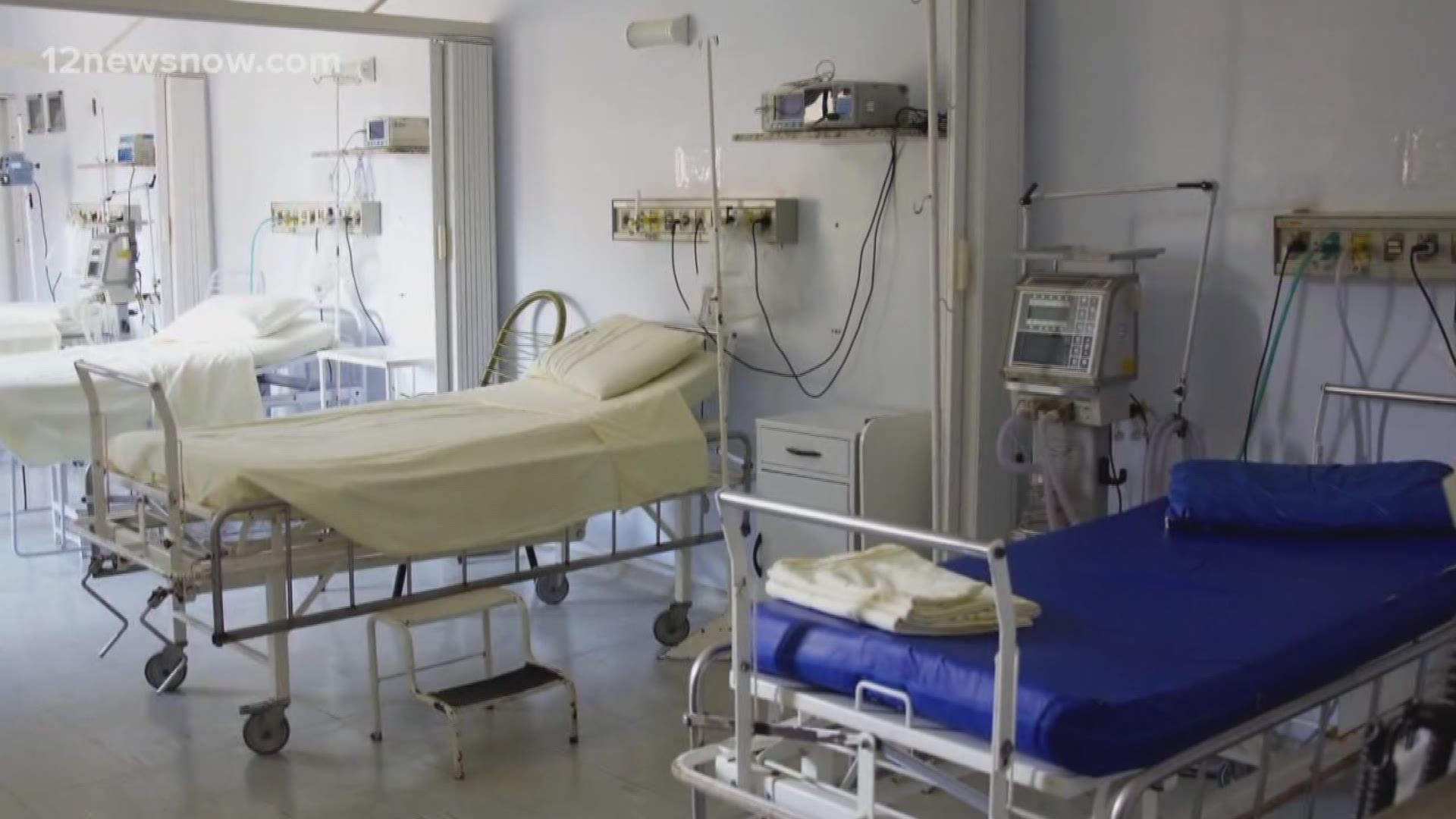BEAUMONT, Texas — Jefferson County is now dealing with more patients fighting for their lives from coronavirus than any other time since the pandemic began.
Jefferson County Judge Jeff Branick tells 12News that ICU beds in Jefferson County are full and reaching maximum capacity.
"As of today, our hospital beds are at ICU capacity," Branick said. "They have the highest number of COVID patients (since) the end of May."
Who's in the hospital in Jefferson County (as of July 7)?
- 104: COVID-19 patients in general hospital beds
- 41: COVID-19 patients in ICU
- 544: Total number of patients in the hospital (COVID & non-COVID)
- 86: Total number of patients in ICU (COVID & non-COVID)
*Info provided by SETRAC
The number of patients in ICU with COVID-19 has been rising daily since July 1, according to data from the Southeast Texas Regional Advisory Council. The number of patients hospitalized with the virus is also a number that has been rising consistently since June 29. There have been spikes of hospitalizations in Jefferson Co. since Memorial Day.
Jon Clingaman with SETRAC tells 12News that the area surge plan has been activated for Jefferson County. Some patients are being sent to Mid Jefferson Extend Care Hospital in Beaumont.
RELATED: Where can I get a COVID-19 test?
Coronavirus symptoms
The symptoms of coronavirus can be similar to the flu or a bad cold. Symptoms include a fever, cough and shortness of breath, according to the Centers for Disease Control.
Most healthy people will have mild symptoms. A study of more than 72,000 patients by the Centers for Disease Control in China showed 80 percent of the cases there were mild.
But infections can cause pneumonia, severe acute respiratory syndrome, kidney failure and even death, according to the World Health Organization. Older people with underlying health conditions are most at risk.
The CDC believes symptoms may appear anywhere from two to 14 days after being exposed.
RELATED: VERIFY: No, members of Congress who are self-quarantined for coronavirus cannot vote remotely
Human coronaviruses are usually spread through...
- The air by coughing or sneezing
- Close personal contact, such as touching or shaking hands
- Touching an object or surface with the virus on it, then touching your mouth, nose or eyes before washing your hands.
Help stop the spread of coronavirus
- Stay home when you are sick.
- Eat and sleep separately from your family members
- Use different utensils and dishes
- Cover your cough or sneeze with your arm, not your hand.
- If you use a tissue, throw it in the trash
Lower your risk
- Wash your hands often with soap and water for at least 20 seconds. If soap and water are not available, use an alcohol-based hand sanitizer.
- Avoid touching your eyes, nose, and mouth with unwashed hands.
- Avoid close contact with people who are sick.
- Clean and disinfect frequently touched objects and surfaces.
- If you are 60 or over and have an underlying health condition such as cardiovascular disease, diabetes or respiratory illnesses like asthma or COPD, the World Health Organization advises you to try to avoid crowds or places where you might interact with people who are sick.

